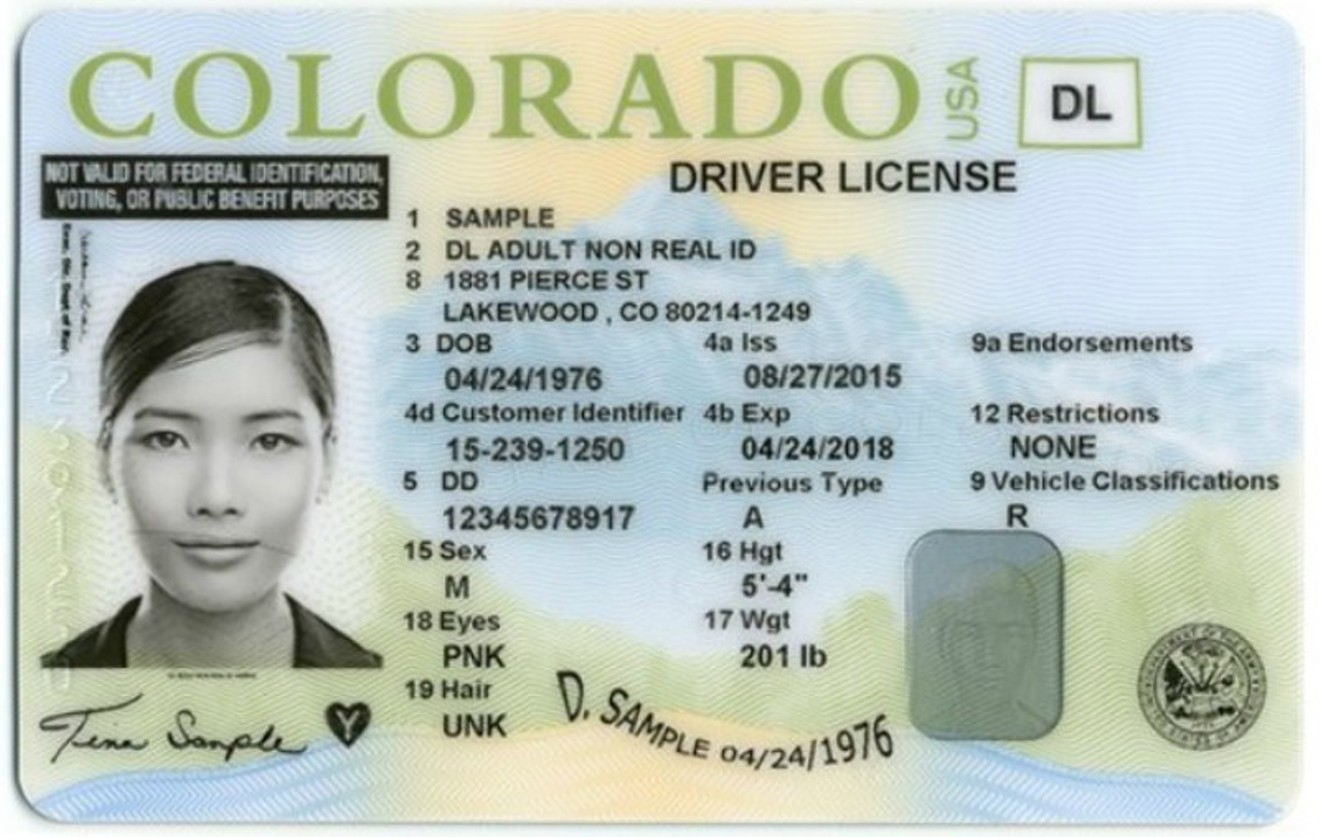On Wednesday, April 18, the Colorado House voted in favor of the Eligibility Colorado Road and Community Safety Act, which expands access to driver's licenses for undocumented residents. Since the state senate approved the measure last month, it will become law with Governor John Hickenlooper's signature. Joe Sammen, executive director for Denver-based Center for Health Progress, which backs the act, summarizes the reasons for its success during what he calls "such a polarizing time around immigration" in two words: "strange bedfellows."
According to Sammen, "a lot of people and organizations that don't always see eye to eye on things came together to support the bill: health-care leaders and civil-rights organizations that have cared about this issue for a long time, but also folks like ranchers and dairy farmers" who want their employees to reach their job site without fear of detention and/or deportation if they're stopped for driving without a license.
The introduction to the legislation, formally known as Senate Bill 18-108, spells out the basics: "Currently, a person who is not lawfully present in the United States may obtain a driver's license or identification card if certain requirements are met. One of the requirements is that the person present a taxpayer identification card. The bill allows a person to present a Social Security number as an alternative to a taxpayer identification card. The bill allows the license or identification card to be reissued or renewed in accordance with the process used for other licenses and identification cards. A person whose license is lost or stolen may obtain a replacement without renewing the license."
This language is intended to correct a mistake that's lingered for a half-decade, Sammen notes: "The main thing the bill does is shore up the Colorado Road and Community Safety Act," aka SB-251, "which provided access to driver's licenses to all Coloradans regardless of immigration status. But there were some drafting errors in the bill that kept thousands of people from participating. The original bill requires the person applying for the license to have an individual tax ID number, but many immigrants have valid Social Security numbers instead — and people who have Social Security numbers can't apply for individual tax ID numbers."
In addition, Sammen continues, "the original 251 required in-person renewal every three years. But there were only three offices that originally participated in the program," located in Denver, Colorado Springs and Grand Junction. "They've temporarily added an office in Aurora that processes renewals. But we've heard stories about how difficult it is for people to get to one of these offices in person — traveling over mountain passes from Telluride, the Four Corners area, even Glenwood Springs. So the new bill will let people participating in the program renew online, just like anyone else with a driver's license in the state can."
The reasons that the Center for Health Progress got involved in this particular matter are spelled out in a scientific paper assembled under the I Drive Colorado banner. According to Sammen, "the science shows that about 40 percent of what contributes to a community's health are social and economic factors. But another 30 percent are healthy behaviors, like eating healthy food and exercising — and a lot of that is linked back to transportation. Having a driver's license helps people get to a grocery store that sells healthy food, get to recreation and exercise opportunities, get to the doctor's office."
As Sammen notes, "we know that challenges in transportation can result in delayed care or no care that may force a person to put off preventative care. That may cause them to develop an acute issue that may lead to more emergency-room use, and that makes health care more expensive for anyone" — a variation on an argument he's been making since early 2017, when he discussed President Donald Trump's immigration orders with Westword.
The new bill doesn't resolve every issue surrounding SB-251. As Nora Olabi has reported, the program is paid for by higher driver's license fees for participants, but more money is coming in than running the program actually costs. The result is a pool of cash that's expected to hit the $2.9 million mark by this June, and it's unclear exactly what will happen to it.
In the meantime, though, Sammen is excited to see disparate groups working together on an immigration issue rather than clawing each other apart.
"The rhetoric is so negative at the national level, in particular," he says. "So we believe this is a great example of how a state initiative can protect immigrants no matter their status and show them we want to create a community that's really inclusive of all people."
Click to read Senate Bill 18-108 and the I Drive Colorado health paper.
[
{
"name": "Air - MediumRectangle - Inline Content - Mobile Display Size",
"component": "12017618",
"insertPoint": "2",
"requiredCountToDisplay": "2"
},{
"name": "Editor Picks",
"component": "17242653",
"insertPoint": "4",
"requiredCountToDisplay": "1"
},{
"name": "Inline Links",
"component": "18838239",
"insertPoint": "8th",
"startingPoint": 8,
"requiredCountToDisplay": "7",
"maxInsertions": 25
},{
"name": "Air - MediumRectangle - Combo - Inline Content",
"component": "17261320",
"insertPoint": "8th",
"startingPoint": 8,
"requiredCountToDisplay": "7",
"maxInsertions": 25
},{
"name": "Inline Links",
"component": "18838239",
"insertPoint": "8th",
"startingPoint": 12,
"requiredCountToDisplay": "11",
"maxInsertions": 25
},{
"name": "Air - Leaderboard Tower - Combo - Inline Content",
"component": "17261321",
"insertPoint": "8th",
"startingPoint": 12,
"requiredCountToDisplay": "11",
"maxInsertions": 25
}
]













